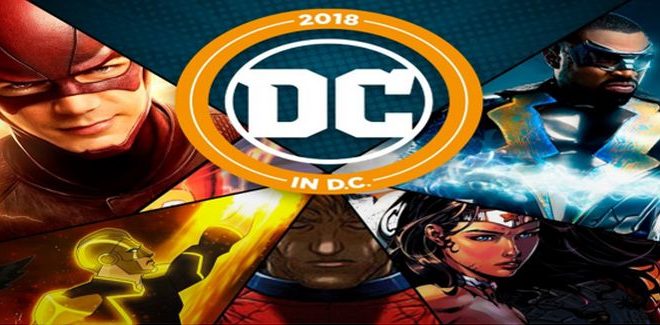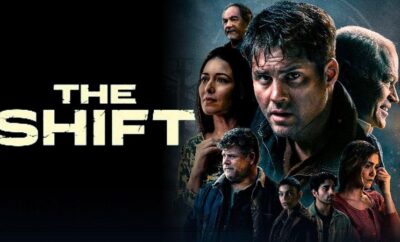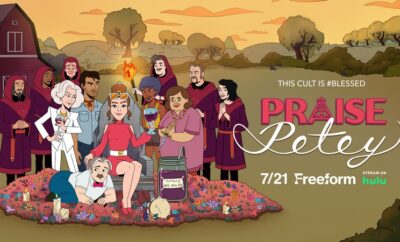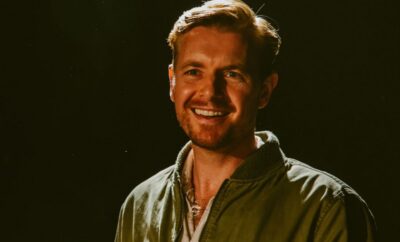
Features
DC in DC 2018
By: Jessica Wolff
Washington, DC, the Nation’s Capital, is typically known the central hub for politics and activism. However, on Martin Luther King Jr. Weekend, Washington, DC became the place to be for fans of DC Comics and TV Shows. While the weekend centered on promotion for DC’s newest superhero television show, “Black Lightning,” ending with a star-studded premiere for the show, the weekend as a whole was a celebration of heroes of all types. Particularly, it was a celebration and a discussion about the diversity of DC’s heroes and the impact they have had on society for decades.
The Newseum, a museum dedicated to the history and power of journalism, hosted the majority of the weekend. The weekend began with a screening of the newest Batman animated film Batman: Gotham By Gaslight on Friday, but the bulk of the events happened on Saturday. Saturday’s series of panels opened with an introduction from the President of DC Entertainment, Diane Nelson, who asked trivia questions about the appearances of Dr. Martin Luther King, Jr. in several DC comic books over the years and gave away signed comic books to those who answered. She then gave opening remarks about the impact of comic books on American culture and politics and how comics have tackled important issues over the years. The day contained five panels that opened with a video presentation, a Q&A with the panelist moderated by DC Area journalists and a chance for fans to ask questions at the end.
The first panel of the day, “The Art Of The Matter: From Sketch To Screen,” concerned the adaptation of beloved comic book characters for the DC television universe. Producer Greg Berlanti discussed the initial struggles of laying the groundwork for the universe, which now contains five different television series, a couple animated web series, and comic books based specifically on the television shows themselves, with the first show “Arrow.” Actress Caity Lotz discussed the challenges of preparing to play a character with no previous comic history, actor Brandon Routh discussed the differences between playing the Atom on “DC’s Legends Of Tomorrow” and his breakout role as Superman in 2006’s Superman Returns, and actress Danielle Panabaker discussed the transition of her character on “The Flash” from heroic lab tech Caitlin Snow to supervillain Killer Frost. One of the “Black Lightning” creators, Salim Akil, and star Cress Williams discussed how they brought the beloved character to the small screen.
Each of the next four panels over the course of the day tackled different aspects of diversity and representation in comics and comic book television shows. The first, “The Many Shades Of Heroism: DC Heroes Through The African American Lens,” featured a panel of all black actors and creators, and talked about issues of race in the comic and television worlds. Actress Candice Patton, who got some of the loudest cheers over the course of the day, was asked about how her being cast as Iris West paved the way for the upcoming movie adaptation of “The Flash” to also cast a black woman, Kiersey Clemons, in the role of Iris despite the comic version of the character previously being a white woman. Candice expressed that she was honored to be the first black adaptation of Iris and that she was excited that a new generation would view Iris as a black woman for years to come.
Candice also discussed her struggles as a black actress being only offered the role of the white protagonist’s best friend, and declaring that she is now the pretty white girl. She mentioned the importance of little black girls being able to look up to Iris, a woman who gets to be the hero’s love interest as well as a hero in her own right. “Gotham” actor Chris Chalk also expressed his excitement of being approached by young black kids who have been inspired by the science that his character, Lucius Fox, does on the show.
While many other actors and creators also spoke about their experiences and the importance of diversity in comics, much of the focus was on “Black Lightning,” the first black superhero family on television. Husband and wife creator team, Salim and Mara Brock Akil discussed their passion for the show and how they wanted to address the modern day issues of being black in America through the show, commenting that they had a lot to say about current events. Cress expressed how much he loved reading comics as a kid, but that the opportunities to play superheroes as an actor are limited due to being a black man, which made him excited to land the role of Black Lightning.
The next panel titled “Wonder Women” focused on the representation of women in the DC Universe. The panel was made up entirely of actresses and female creators. Many of the panelists said that their love of comics started at an early age, and the moderator expressed surprise at a statistic that while readership of comics is 53% female, only 25% of the characters in comics are female. Much praise was given to the recent record-setting Wonder Woman movie and how empowering it was for them, questioning if men felt that way walking out of every other movie. Caity admitted that getting to play a role where she got to fight and be a hero was more empowering than other roles she’s had, and Candice explained that the importance of having women behind the camera to help make decisions regarding female characters and to speak up when an actress is uncomfortable about a decision.
Much of the discussion involved the costuming of female superheroes, particularly around more revealing clothing. Most of the panelists agreed that the costume needed to be practical first and foremost, but the amount or type of clothing a woman wears doesn’t make her more or less of a feminist icon. Some concern was expressed about revealing outfits solely for the male gaze, and actresses Erin Richards and Jessica Lucas told a story about how they were able to refuse to film a torture scene on “Gotham” in their underwear. The hot button issue of the wage gap was discussed, where actress Camren Bicondova and the rest of the panel agreed that change can only be made once the actresses are valued as much as male actors and no longer seen as easily replaceable.
After a small break, the next panel, “The Pride Of DC: The Art Of LGBTQ Inclusion,” opened with the screening of an episode of animated CW Seed series Freedom Fighters: The Ray, the first LGBTQ led superhero show. After the brief episode, the panelists were introduced with their pronouns displayed on the screen, where they hadn’t been for any other panel. Openly gay producer Berlanti talked about how he identified with superheroes as a kid because they were hiding a part of their identity like he was. Other panelists discussed how they dealt with homophobic backlash on social media surrounding their characters that identify as LGBTQ or, as coined by a panelist, “on the pride spectrum.”
The panelists agreed that there are both positive and negative attributes of having an established character explore their sexuality as well as creating a new character from scratch. The overall sentiment was that there needed to be more LGBTQ characters and Berlanti admitted that the DC television universe should incorporate more trans representation in the future. Openly gay actor Russell Tovey, who voices The Ray in “Freedom Fighters: The Ray” as well as played his live-action counterpart in the recent Crisis On Earth-X crossover, told a touching story that a gay fan sent to him via social media of how excited his son was to see two men kissing during the crossover like his dads and the young boy was even more excited to see that the two men were superheroes.
The final panel of the afternoon, “The Aftermath: Battle & Trauma In Comics,” dealt with the affects of combat on heroes, particularly PTSD. The panelists were all military veterans, and one was a doctor that specialized in trauma recovery. There was much discussion concerning how media as a whole depicts trauma, especially since a large number of Americans know someone who is dealing with PTSD. There was a general agreement that media as a whole tends to overlook trauma, but that representation of trauma has gotten better in recent years. Comic writer and veteran Tom King was a huge draw for the panel, as he discussed how his own experience with trauma shaped his writing for two different series “Batman” and “Mister Miracle.” The protagonists of the two series both deal with trauma in different ways, and it shapes who they are as characters.
The evening featured a sneak peek screening of “Black Lightning” and a Q&A with the cast and creators leading into a star-studded invitation-only premiere where many of the day’s panelists walked the red carpet. Other aspects of the event included autograph signings throughout the day and a pop-up shop outside the Newseum selling comics, shirts, and Funko pops. To the side of the pop-up shop was a Jitters kiosk, the coffee shop in “The Flash,” handed out free branded coffee to attendees. While the intention of the event was to promote of all of DC’s projects, particularly “Black Lightning,” it was also a celebration of superheroes of all types, a demonstration that anyone can be a superhero. The theme of the day was that representation matters, especially during this current political climate. As Caity Lotz succinctly put it, “the world needs heroes now more than ever.”





You must be logged in to post a comment Login